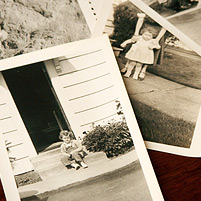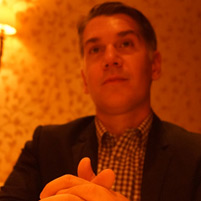The Good Old Days?


Carey Morewedge
Remember the good old days? Maybe they weren't so good. Carnegie Mellon University's Carey Morewedge has shown that when it comes to evaluating the past, we're more likely to remember the positive, creating biased 'nostalgic preferences.'
"Whether evaluating the present or past, good experiences quickly come to mind. When evaluating the past, however, we are less likely to recall bad experiences than when we are evaluating the present. In other words, memory is much like a record store. It stocks the hits of the past, and both the hits and duds of the present."
He continued, "Our failure to remember the bad experiences of the past and correct for their absence leads us have to nostalgic preferences for past experiences," explained Morewedge, an associate professor of marketing and the BP Junior Faculty Chair at CMU's Tepper School of Business.
Morewedge's experiments analyzed how people rate television and movies of the past and present, and found that when evaluating the general category, the past was consistently given the nod.
When asked to recall specific examples, participants were likely to cite shows from both today and years ago that were similarly good — most often their favorites. Significantly though, they tended to evaluate all shows of the past based on these favorite examples, which did not occur when they considered the present.
These findings have important implications for optimal business practices.
"Our belief that the past was better than the present may lead us to reject change that is often for the better," noted Morewedge. "This work suggests that when making a transition to new ways of doing things, people may need to be reminded of all the ways in which the past could have been improved, both in life and work."
Examples of such transition could include employee acceptance of modern technological improvements or greater diversity in the workforce. Moreover, this research could help marketing professionals to better understand customer preferences and how they change over time.
Morewedge began this study following his previous work in which he'd found that people rely on atypical memories to predict whether they'll enjoy a similar, future experience. A man might decide, for instance, that he'd love to see next week's ball game based on his recollection of last season's most exciting match. Morewedge surmised that this memory bias might also lead us to judge past experiences as better than those occurring today.
Morewedge joined the CMU faculty in 2007, excited to advance his work at the cutting edge university. He wasn't disappointed.
"CMU has an incredibly supportive community of scholars who provide great feedback on ideas and research," Morewedge emphasized. "And getting to work with many who have similar research interests through the interdisciplinary Center for Behavioral and Decision Research — backgrounds include psychology, economics, marketing, organizational behavior and public policy — makes me feel particularly lucky."
"Carnegie Mellon University is one of the premier places to study judgment and decision-making — the focus of my research," Morewedge added. "The late Herbert Simon — CMU faculty member and Nobel laureate — did much to found the study of how psychological processes influence our judgments and decision-making. And CMU has remained at the forefront of this field since he began that work here."
Related Links: Read press release | Tepper School of Business | Dietrich College of Humanities and Social Sciences | Dept of Psychology | H. John Heinz III College
